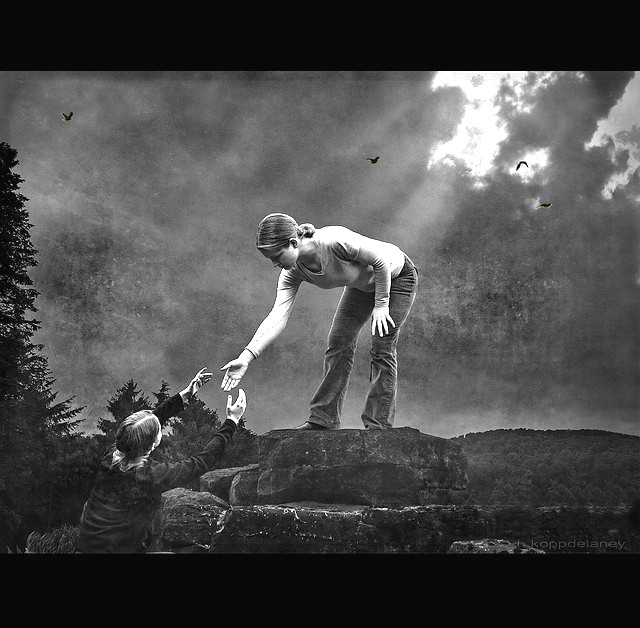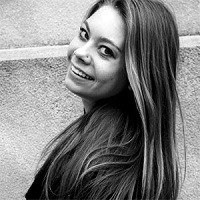For many of us, the impending New Year brings with it a heightened introspection as we itch to discover how we can become better people (often causing us to spend vast amounts of money on blenders, gym memberships, and self-help books).
It can also couple with a warm feeling of nostalgia (or acts of hindsight—facepalming) as we reflect on the year coming to a close.
My own introspection and nostalgia raging, I find myself thinking back to a moment four years ago when I was asked the most important question of my life—an enquiry into my true values:
Suppose you were to die tomorrow and no one would even remember that you existed. That you were completely erased from history. What one thing would you like to have changed about the world even though no one would remember you for having changed it?
Answering this question helped bring to my awareness that I had the ability to contribute to something transcending my primitive needs for basic survival and social acceptance: My truth. Four years later, my answer has evolved, but not changed fundamentally.
“Becoming better people” starts by taking an honest look within. Finding our “why.”
This questions strips away our attachment to recognition and acceptance by forcing us to reflect on the processes that have allowed us to grow from challenging experiences; would we still find those experiences valuable if no one else cared?
It’s interesting to see how many people go blank in response to this question. Funny how by removing recognition of achievement, many of us have no clue what we truly value.
We do things only for the credit or to impress someone (hell, I’ve done it!). We crave praise and acknowledgement to feel that what we’re spending our time on is worth it. But without the recognition, piece of paper proving our value, or letters behind our names, would we still have done those things?
Many people who go to med school to become doctors, for example, do it because their parents want them to (to please), for the money (to survive), or social status (to be recognized). I’d like to know how many of these doctors would honestly be able to answer my question: “Teach people how their bodies are self-healing machines, hardwired for health if given the correct guidance.”
Now consider the doctor who, inspired by his own health challenges, pursued a career in medicine to teach his process to others, despite his lack of money, and parents who did not believe he was smart enough.
The former, praise-motivated doctors, are the ones sitting by the river studying it, recording its variations, understanding it very scientifically. The latter doctor actually jumped in.
It’s also interesting how many of us will answer this question with something incredibly, globally gallant like “abolish poverty,” or “create racial equality.” Definitely noble causes, but not realistically possible for one person alone to create a significant dent in.
As a naïve, idealistic, and annoyingly optimistic individual, I do believe that the actions of one person can change the world, but even I can recognize that global change requires many local actors. One person can create global awareness, but only the actions of many can create the desired change.
These people who answer my question with the global cause to “abolish poverty,” have not yet conceptualized their “why”. They aren’t thinking for themselves. They are likely to not have even experienced the poverty they wish to abolish. But they know it is a bad thing because it’s on the news every day. This is the danger in not knowing our truth.
If we don’t know our truth, we must do as society tells us is important rather than act according to our unique talents and values.
Regurgitating something we’ve been taught to be important but that doesn’t reflect our true experience of what is meaningful in our lives and what we are truly capable of teaching to others.
Don’t be the entrepreneurial coach who has never started a business. Be aware that focusing on a problem is not the same as sharing a process-based solution to it.
What my question is really asking is:
In what particular domain have you made a sufficient number of mistakes to provide awareness of a solution? Why is it that you care about this? And would you still care if your efforts were not recognized? What do you think could happen if you could raise awareness of this? How could this help people?
This thought process often leads people to similar answers, often one that is awareness-based: A desire for people to understand. To see what we can see after years of hindsight. To inspire local actions that can collectively become the global improvement we seek.
Look globally, act locally.
What I think is so beautiful is that everyone has their own specific talent for a particular type of awareness, and it’s waiting to be illuminated and shared. Fear not the truth, own it.
By owning our truth we can help others to see theirs. Imagine world full of people like that. People who transform the worst of their obsessions and fears into a fulfilling path.
Let’s illuminate the new year with the brightness of our truth, shining awareness on the real processes that allow us to grow, sharing them with the world.
I love hearing answers to this question. Help illuminate the world by posting an answer in the comments.
~
Author: Monika Volkmar
Editor: Katarina Tavčar
Photo: Hartwig HKD/Flickr







Read 15 comments and reply